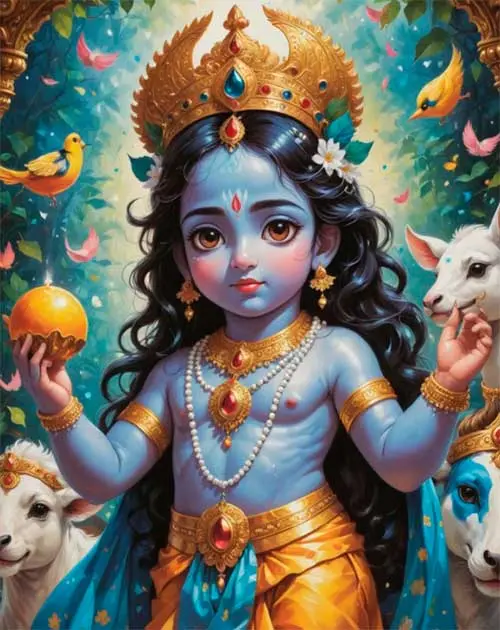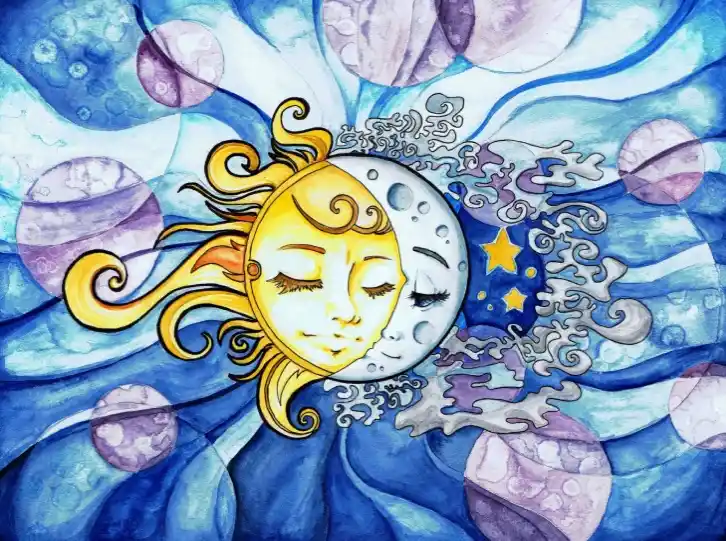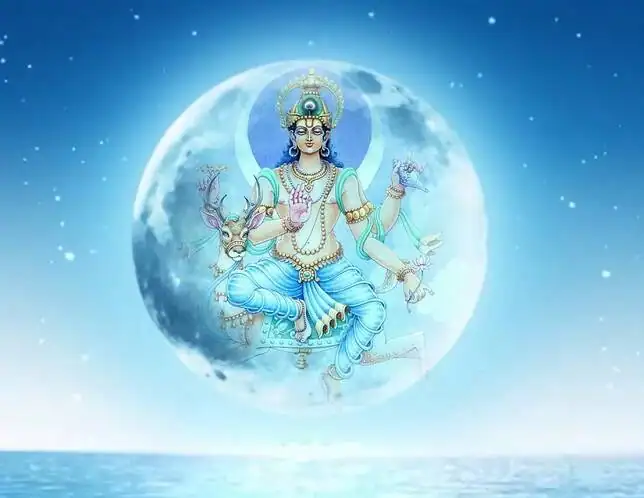Krishna Janmashtami
— is an important festival in Hinduism that celebrates the birth of Lord Krishna, the eighth incarnation of Vishnu. This festival falls on the eighth day (Ashtami) of the dark half of the month of Bhadrapada in the Hindu calendar, which usually coincides with August or September.
Traditions and Celebrations:
Fasting and Prayers: Devotees observe a strict fast throughout the day and night, beginning the celebration after midnight when, according to legend, Krishna was born. The fast symbolizes the purification of body and soul, as well as preparation for the encounter with the deity. During this time, spiritual songs, hymns, and sacred texts, such as the “Bhagavad Gita,” which narrates Krishna’s life and teachings, are recited.
Midnight Celebrations: Temples and homes are adorned with flowers and lights, and Krishna’s idol is bathed in milk, dressed in new clothes, and placed in a cradle. Krishna’s birth is celebrated with great joy: people sing, dance, and read passages from the “Bhagavad Gita,” which conveys the spiritual and moral principles taught by Krishna.
Rasa Lila and Dahi Handi: In many regions of India, particularly in the northern parts, theatrical performances known as “Rasa Lila” are held, depicting the life and adventures of Krishna. In Western India, especially in the states of Maharashtra and Gujarat, the ceremony of “Dahi Handi” is popular, where a clay pot filled with yogurt is hung high above the ground, and teams form human pyramids to try and break it. This symbolizes Krishna’s love for butter, as he was known as “Makhanchor,” meaning the one who steals butter.
Spiritual Significance:
Krishna Janmashtami symbolizes the victory of good over evil, as Krishna’s birth was predestined to rid the earth of tyrannical rulers like Kansa. It also serves as a reminder of the importance of following Krishna’s teachings, especially the principles laid out in the “Bhagavad Gita”: duty, righteousness, and devotion.
Additional Aspects of the Day:
Meditation and Reflection: Krishna Janmashtami is also a time for meditation and self-reflection. People analyze their lives, ponder spiritual truths, and strive for personal development. Reading the “Bhagavad Gita” provides inspiration and helps find direction in life.
Social Cohesion: This festival fosters the unity of families and communities, who come together to celebrate, prepare special dishes, and spend time in fellowship. The spiritual unity during Krishna Janmashtami helps strengthen social bonds and mutual understanding.
Krishna Janmashtami is one of the most revered and beloved festivals in India, uniting people in a collective expression of faith, joy, and devotion to Lord Krishna. It is a day when the spiritual and cultural values of Hinduism take on special significance, inspiring spiritual growth and harmony.



